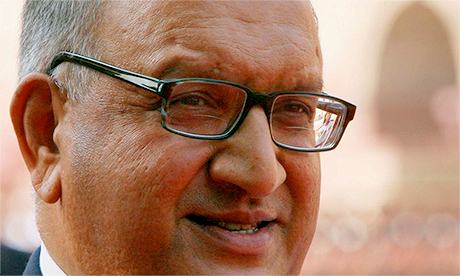My father, Mutyala Satyanand, came from Fiji as a school student in the 1920s.
For about 40 years, the Fiji government had a scheme, whereby they sent two Indian boys and two Fijian boys to secondary school in New Zealand. Schools like Palmerston North Boys’ High and Napier Boys’ High.
My dad went to Wanganui Tech, which later became Wanganui Technical College.
And he went on to do medicine at Otago University, where he qualified in 1938.
Then there was a set of unusual circumstances.
He was working as house surgeon and then as registrar at the Auckland Hospital when war broke out on the 3rd of September, 1939.
He had finished his contract at Auckland Hospital at the end of August, and my mother (Tara Tillak) had come from Fiji.
They were engaged to be married and were going to return to Fiji.
But two things happened.
War broke out, and the man in charge of the A&E at Auckland Hospital died unexpectedly.
So the hospital superintendent asked my father to fill in as a replacement — which he agreed to. And he started the following week.
Then, in early 1940, something called “manpower regulations” came into force.
That meant that if you were doing important jobs like being in charge of a coalmine, or a transport service, or a hospital department, even in an acting capacity, you were locked in to that job.
My father didn’t mind because it was good experience and Auckland Hospital was a great place to work as a doctor in the 1940s.
He remained there and, at the end of the war, he got a letter from the government, I think from Walter Nash, offering, because of his service, to make him a permanent resident.
And, to cut a long story short, he and my mother decided to accept the offer, partly because their children had started to arrive — and partly because they were performing a role a wee bit like voluntary vocational guidance advisors.
There were people coming to them for advice about what course they should do, or where they should live, or whether they should board.
That sort of thing.
By the end of the war, Fijian and Indian parents were sending their children to New Zealand, and my father was especially helpful because he could speak Fijian as well as Hindi.
So they accepted permanent residence and, a few years later, became New Zealand citizens.
I had become a New Zealand citizen by having been born here in 1944, at the Bethany Hospital in Dryden Street, Grey Lynn.
You have a neat name, although I guess it would’ve been mispronounced and butchered over the years. Would you be kind enough to tell us a little bit about that name?
Well, Anand means joy and Satyanand means truth.
So you could say that my name, Anand Satyanand, means through truth comes joy.
Of course, it’s not a common name in New Zealand but, if you and I were in India today, particularly central India, we would come across repeats of it.
Not just Anand and Satyanand, but also Ananda and Satyananda.
You and your siblings grew up here at a time when there weren’t so many people from Fiji here. Did being different mean you were subject to much prejudice?
Well, I was born and raised in Ponsonby, and then, by the time I became a teenager, we shifted to Glen Innes.
So I went to Richmond Road School Primary and then Sacred Heart College.
In both of those suburbs and those schools, there were some Māori and Pacific Island people, although at both schools I would be among less than half a dozen non-Europeans.
But, from an early age, my parents brought up myself and my brother Vijay to think that it was a positive thing to be different — and that we were in a country which rates people by the quality of their work, and that we ought never to feel uncomfortable or awkward about being a different colour and about coming from a different background.
When did you realise that, in some ways, Māori were being disadvantaged in New Zealand?
That’s a good question.
I think I always knew that there were issues developing under the surface.
In Ponsonby, for example, there were people who’d come in the first wave of Pacific Island migrants to New Zealand, in the 1950s.
People with family names like Sanft and Kohlhase and Williams.
Then, in Glen Innes, where my father had become the local GP, we had Māori neighbours and friends on West Tamaki Road.
Our neighbours two along were Brownie Puriri and his wife and family.
Across the road from us was Bill Brown. And the local policeman was Alec Farmer.
So there were discussions, and as youngsters we heard our parents and friends talking about this matter of Māori needing to have a more equal footing in the country. Continue reading
- Image: ABC
News category: Features.




